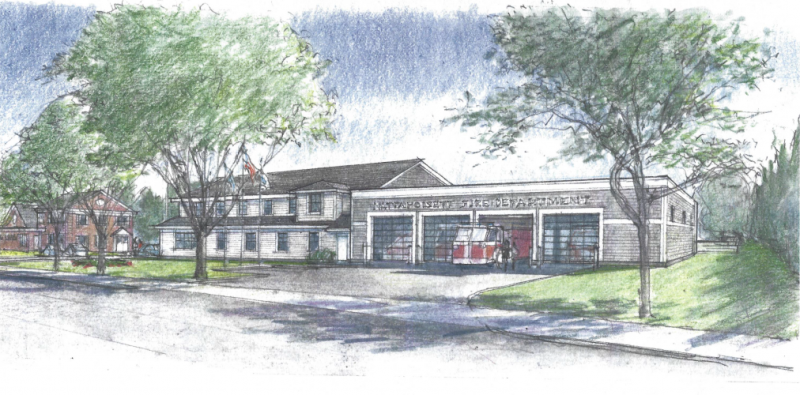Town officials define their 2020 priorities
Marion Town Administrator James McGrail identified improvements of the lagoons at the Wastewater Treatment plant as “project number one.”
The plant has three lagoons. Lagoon one needs to be lined to prevent leaks. The town was given a Nov. 30, 2019 deadline by the Environmental Protection Agency, but underestimated its cost and fell behind. McGrail said that work on the lagoon will begin immediately in 2020.
Another $6 million project will redesign Front, Cottage, and Main Streets. As of December 2019, McGrail said the project was “90% designed.”
The town will also renovate the main section of the Town House with new windows, roofing, and siding.
Marion also faces complicated challenges as a member of two regional districts.
One is the Old Rochester Regional School District, where McGrail said the town will explore using five-year averages in student population, not year-to-year changes, to determine costs and make funding easier.
While Marion voted to leave the Carver Marion Wareham Regional Refuse district in 2019, McGrail said the town will likely stay, since the district voted to “skeletonize” operations. It will close its transfer stations at the end of 2020, and just manage ongoing liabilities. McGrail said that Marion intends to keep the Benson Brook Transfer Station open.
Mattapoisett has numerous infrastructure and town building projects in various stages that it will focus on for 2020.
One major construction project is a new Fire Station next to the Mattapoisett Police Station. Town Administrator Michael Gagne said plans for the station are nearly complete, and the project will go out to bid in January.
The town hopes to choose a builder by March or April, and break ground this spring.
Gagne also said the town plans to install a light on Route 6 near the two stations to stop traffic and allow first responders to exit in both directions.
In 2020, Mattapoisett plans to use a new online capital management system, which will list buildings and vehicles the town owns and notify officials when they will have to replace them.
Finance Committee member Colby Rottler is also working with the Old Rochester Regional School District on a strategic plan to better communicate when its major assets will need to be replaced, so the town can start saving money.
Mattapoisett hopes to get grants to fund permitting and repair costs to fix Long Wharf and complete dredging in the harbor.
The town will also start the design process for a major project that would fully reconstruct the roads, sidewalks and drains for Main, Beacon, and Water Streets, 2.5 miles of Marion Road, and replace the signal at County Road and Main Street.
Gagne explained that the project was in its planning stages, and that the town could optimistically expect work to begin in late 2021.
The town will also continue grant and design work on improvements to Industrial Drive and a bike path which will run from Industrial Drive to the Marion Town Line (for more information see here).
Rochester Selectman Woody Hartley said that making the Town Clerk more accessible is a major goal for 2020. Selectmen will ask voters to change the position from elected to appointed.
Residents will be able to weigh in on this request at the Annual Election in the spring. Voters supported the decision to place the request on the 2020 ballot in the 2019 Annual Town Meeting.
Currently the Town Clerk is only available 16 hours a week. But Hartley wants to “more than double that” to the same hours as Town Hall. He also plans to add an Assistant Town Clerk, which the town hasn’t had since 2013.
Renovations on the Council on Aging’s parking lot began in 2019. Hartley said that work will continue in the spring, and that the project will hopefully be completed before the next presidential election.
Rochester also expects to be designated a “green community” by the state, which will grant it $800,000 to $900,000 to replace older equipment with more efficient alternatives. Hartley said this will benefit every town department.
Like McGrail, Hartley said the regional school and waste district pose challenges for Rochester.
Hartley said Superintendent Doug White may have the “single most critical position in the tri-town,” and replacing him as he retires is vital. He also said education accounts for about 60% of Rochester’s budget.
Although Rochester is not technically a member town of the regional waste district, the Route 28 transfer station is in Rochester, and the town will have to explore new options after it shuts down.
Hartley said the town will need to have a fully-permitted site available by 2021. Town officials are still exploring options, but Hartley said that the town may operate the station on its own.












